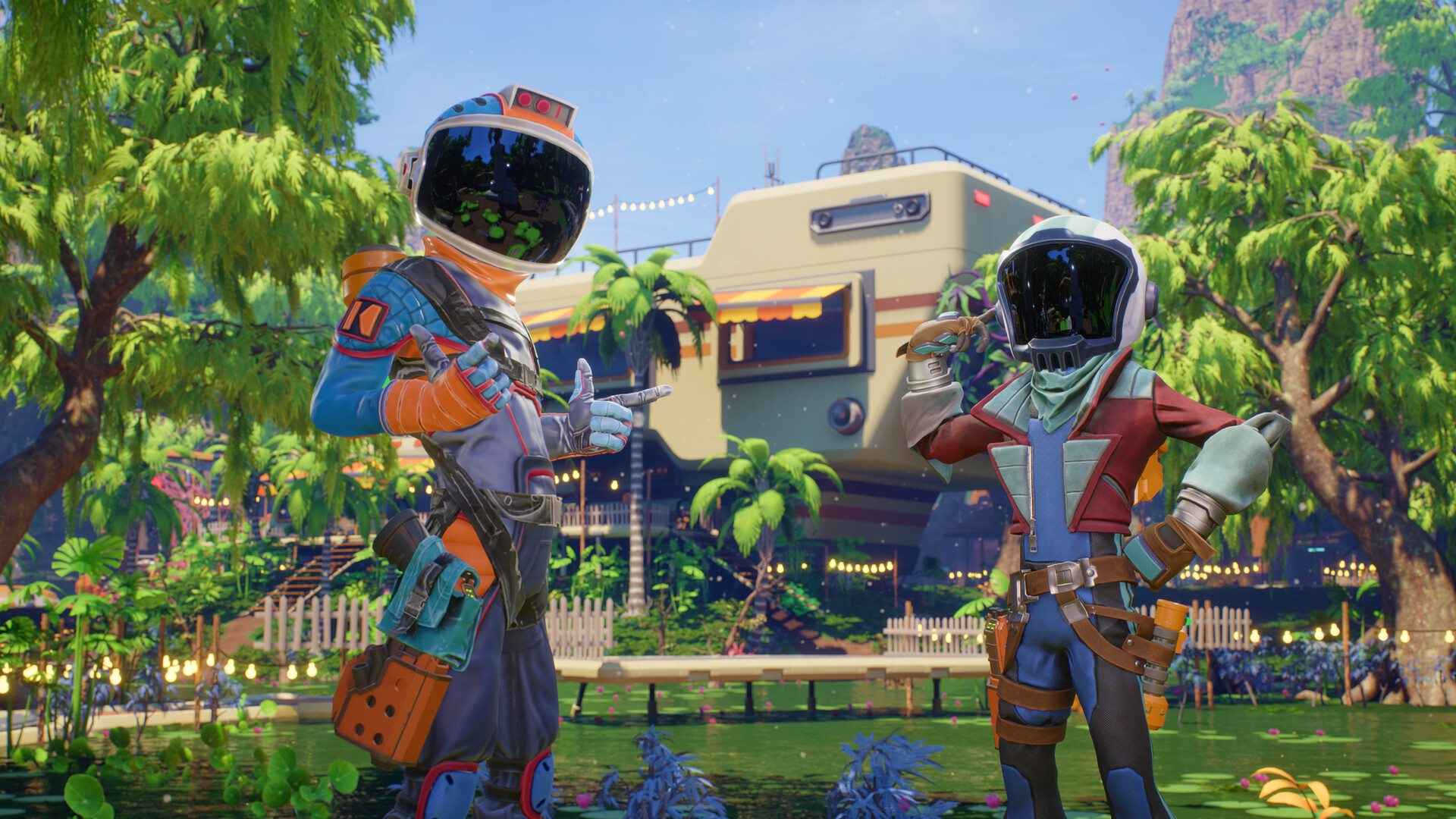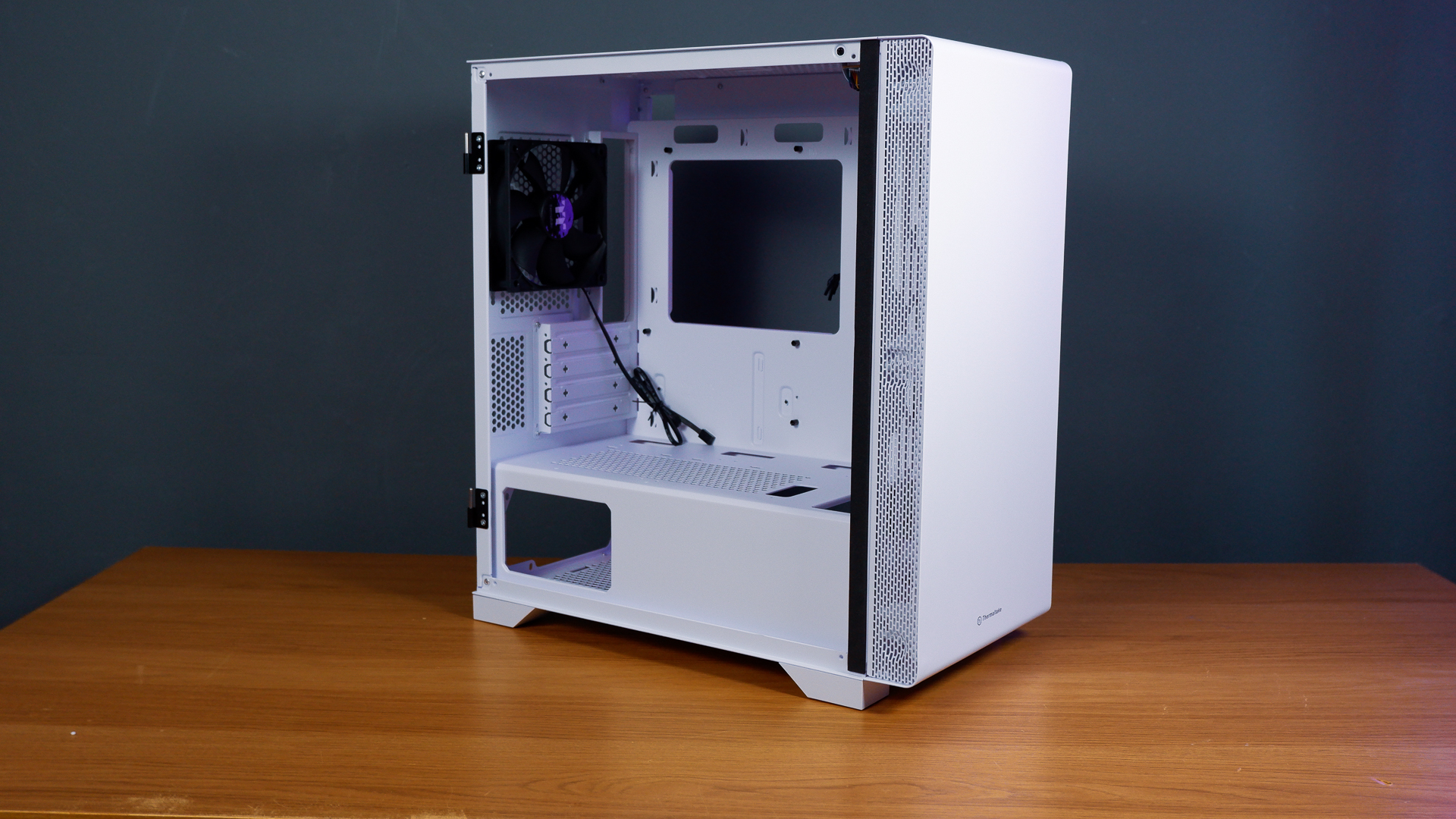Journey to the Savage Planet developer says Google only wanted 'monstrous' games with major licenses for Stadia: 'They were very strange'
Raccoon Logic co-founder Alex Hutchinson, the former head of Typhoon Studios, says Google didn't really have much of a taste for game development.

There have been few more spectacular flameouts in the videogame industry than that of Stadia. After a promise-the-world buildup that included the hiring of industry luminaries Phil Harrison and Jade Raymond, the whole thing fell apart just three years after it went live, leaving owners with nothing but a Bluetooth controller and some cautionary memories.
The cause of the shutdown has been widely attributed to a lack of big-name content that prevented Stadia from claiming a meaningful share of the market, but in a new interview with Eurogamer, Raccoon Logic co-founder and creative director Alex Hutchinson put a somewhat finer point on it: Google really didn't know what it was getting itself into.
Raccoon Logic was founded in 2021 by veterans of Journey to the Savage Planet developer Typhoon Studios. Stadia acquired Typhoon Studios in December 2019, but closed it down in February 2021, right as Savage Planet launched on Stadia—ironically, leaving no one to fix some pretty nasty bugs in the Stadia version of the game.
As you might imagine, that experience did not leave many happy memories. One big issue, according to Hutchinson, is that Google wanted Typhoon to pitch games using major licenses like Marvel and Star Wars, even though the studio was quite small. Google apparently reckoned that Typhoon could work on them as-is, and then hire more people if the games were a hit.
"No one was talking the same language… it was very difficult," Hutchinson said. "We would ask these questions, and we would get the confused puppy look."
Google also wanted the studio to make games that could only be played on the cloud. "It was like saying, 'Here at Netflix, we only make TV shows that couldn't be on any other form of TV', and you're like, I don't know what that is. They were very strange."
The timing of the studio closure was particularly brutal. It came not only on the day Journey to the Savage Planet launched on Stadia, but also at the height of the Covid-19 pandemic, which meant Typhoon developers couldn't even get together to commiserate. "It was pretty dark," Hutchinson said. "The most callous redundancies in games are the day you ship, you know... but that happening in a pandemic was really not fun."
Keep up to date with the most important stories and the best deals, as picked by the PC Gamer team.
In the end, Hutchinson said the only positive takeaway from the experience was "money," but it also sounds like it helped inspire Raccoon Logic's take on its upcoming Savage Planet sequel, Revenge of the Savage Planet. The original game was a sometimes on-the-nose satire of capitalism and corporatocracy, and it sounds like the new game will build on that approach even further, with some familiar notes: Kindred Aerospace, the mid-tier corporation players worked for in Journey to the Savage Planet, has been acquired by a large multinational called Alta Interglobal in the new game, and it's sent you into deep space on a new mission.
"But soon after sending you, Alta Interglobal realizes that space exploration is difficult and expensive, so they decide to abandon all of that," Hutchinson said. "So by the time you arrive on the planet, you've been made redundant."
That should make for an interesting trip, at least. Revenge of the Savage Planet is currently expected to be out sometime in 2025.

Andy has been gaming on PCs from the very beginning, starting as a youngster with text adventures and primitive action games on a cassette-based TRS80. From there he graduated to the glory days of Sierra Online adventures and Microprose sims, ran a local BBS, learned how to build PCs, and developed a longstanding love of RPGs, immersive sims, and shooters. He began writing videogame news in 2007 for The Escapist and somehow managed to avoid getting fired until 2014, when he joined the storied ranks of PC Gamer. He covers all aspects of the industry, from new game announcements and patch notes to legal disputes, Twitch beefs, esports, and Henry Cavill. Lots of Henry Cavill.

